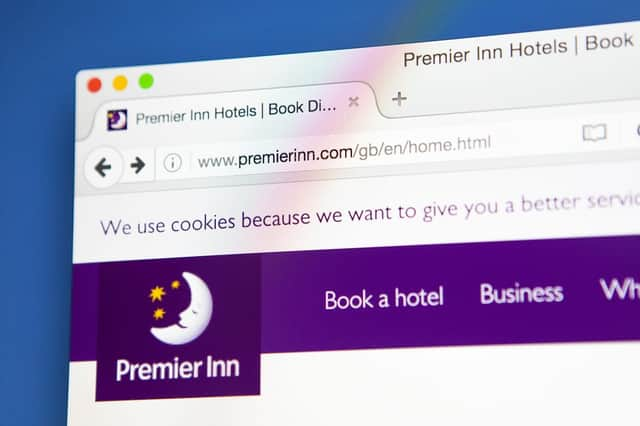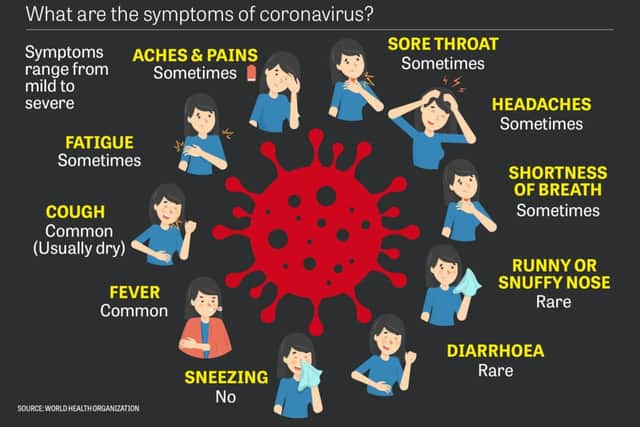Premier Inn offers refunds on non-refundable bookings due to coronavirus - are other hotels doing the same?


With the UK going into lockdown and the Covid-19 strain of the coronavirus continuing to spread, your travel plans are more than likely cancelled as social distancing measures get tighter and “non-essential travel” is banned.
This is what you need to know if you booked a non-refundable room with Premier Inn - or any other hotel chain in the UK.
Advertisement
Hide AdAdvertisement
Hide AdWhat are the new refund rules?


Previously, if you booked a Non-Flex booking, it meant that it could not be amended and you could not get a refund unless you cancelled within 24 hours of booking, otherwise you would be charged for the full value of the stay.
But with the Covid-19 strain of the coronavirus continuing to spread and travel becoming restricted, people who had booked rooms with Premier Inn are finding themselves no longer able to travel.
In response to this, Premier Inn is temporarily changing its rules for those who had made bookings, offering them a full refund regardless of what rooms they booked.
How do I get a refund?
The Premier Inn website states: “Given unprecedented call volumes, we will not be able to cancel or amend your booking in our call centre, so please do not call us.”
Advertisement
Hide AdAdvertisement
Hide AdThis is how you should go about cancelling or amending your booking.
- Go to ‘find booking’ at the top of the Premier Inn website.- Enter your booking reference number, surname and arrival date- Click cancel- Confirm the changes- You’ll receive a new confirmation email- You should have your refund processed within 30 days of the cancellation
You can only get a refund if you have booked your stay between 19 March 2020 and 31 May 2020. For stays from 1 June 2020, you’ll have the option to amend your booking instead.
How do I amend my booking?
If you’d rather change your booking to a different date rather than cancelling it altogether, this is how you do that:
Advertisement
Hide AdAdvertisement
Hide Ad- Click ‘find booking’ at the top of the Premier Inn website- Enter your booking reference number, surname and arrival date- Click ‘amend’- Change your arrival date - this is subject to availability- Confirm the changes- You’ll receive a confirmation email
Changing your booking date could result in a price change - where applicable, Premier Inn will process a partial refund within 30 days of the amendment, or you may need to pay additional charges upon your arrival.
These are the symptoms of coronavirus (Photo WHO)
Are other hotels also offering refunds?
This is what you need to know if you have a booking with another hotel chain amid the coronavirus outbreak.
Holiday Inn are waiving their cancellation fees for existing and new bookings at all Holiday Inn hotels globally for stays between March 9 2020 and April 30 2020
Advertisement
Hide AdAdvertisement
Hide AdHilton Hotels have stated that all reservations, even those described as non-cancellable, that are scheduled for arrival before April 30 2020 can be changed or cancelled for no charge
easyHotel states that if your booking is scheduled on or before April 30, they have amended their cancellation policy to allow for a refund or amendment
Travelodge have said that if you have booked a non-refundable Saver Rate, you can cancel the booking and receive a Saver Rate Cancellation Voucher which will be redeemable for the same value as your booking
Malmaison have said that existing reservations made before 13 March 2020, even those described as “non-cancellable” that are schedule for arrival before 31 May 2020 can be changed, exchanged for a reward card or cancelled at no charge
Advertisement
Hide AdAdvertisement
Hide AdCoronavirus: the facts
What is coronavirus?
COVID-19 is a respiratory illness that can affect lungs and airways. It is caused by a virus called coronavirus.
What caused coronavirus?
The outbreak started in Wuhan in China in December 2019 and it is thought that the virus, like others of its kind, has come from animals.
How is it spread?
As this is such a new illness, experts still aren’t sure how it is spread. But, similar viruses are spread in cough droplets. Therefore, covering your nose and mouth when sneezing and coughing, and disposing of used tissues straight away is advised. Viruses like coronavirus cannot live outside the body for very long.
What are the symptoms?
The NHS states that the symptoms are: a dry cough, high temperature and shortness of breath - but these symptoms do not necessarily mean you have the illness. Look out for flu-like symptoms, such as aches and pains, nasal congestion, runny nose and a sore throat. It’s important to remember that some people may become infected but won’t develop any symptoms or feel unwell.
Advertisement
Hide AdAdvertisement
Hide AdWhat precautions can be taken?
Washing your hands with soap and water thoroughly. The NHS also advises to cover your mouth and nose with a tissue or your sleeve (not your hands) when you cough or sneeze; put used tissues in the bin immediately and try to avoid close contact with people who are unwell. Also avoiding touching eyes, nose and mouth unless your hands are clean.
Government advice
As of Monday 23 March the prime minister has put the UK into lockdown and instructed all citizens to stay at home. People can only leave their homes to exercise once a day, go shopping for food and medication, travel for medical needs or to care for a vulnerable person, and travel to work only if essential. Police will be able to enforce these restrictions.All non-essential shops will close with immediate effect, as will playgrounds, places of worship and libraries. Large events or gatherings of more than two people cannot go ahead, including weddings and celebrations. Funerals can only be attended by immediate family.Children of separated parents can go between both parents' homes.
Anyone with a cough or cold symptoms needs to self-isolate with their entire household for 14 days.
The government has now instructed bars, restaurants, theatres and non-essential businesses to close and will review on a ‘month to month’ basis. Schools closed from Friday 20 March for the foreseeable future, and exams have been cancelled.
Advertisement
Hide AdAdvertisement
Hide AdThe over 70s or anyone who is vulnerable or living with an underlying illness are being asked to be extra careful and stay at home to self-isolate. People with serious underlying health conditions will be contacted and strongly advised to undertake "shielding" for 12 weeks.For more information on government advice, please check their website.
Should I avoid public places?
You should now avoid public places and any non-essential travel. Travel abroad is also being advised against for the next 30 days at least, and many European countries have closed their borders.
What should I do if I feel unwell?
Don’t go to your GP but instead call NHS 111 or look online at the coronavirus service that can tell you if you need medical help and what to do next.
When to call NHS 111
NHS 111 should be used if you feel unwell with coronavirus symptoms, have been in a country with a high risk of coronavirus in the last 14 days or if you have been in close contact with someone with the virus.